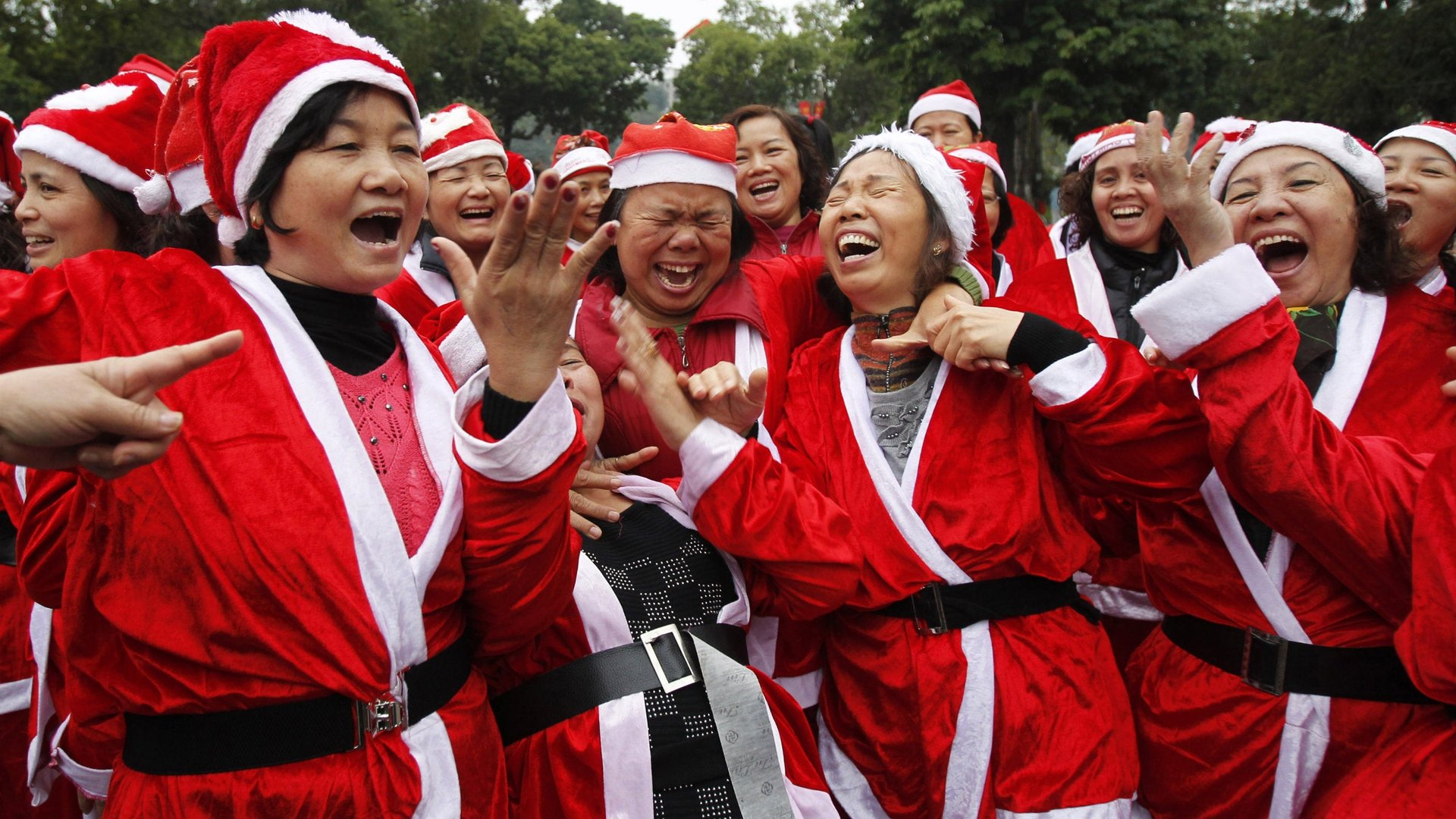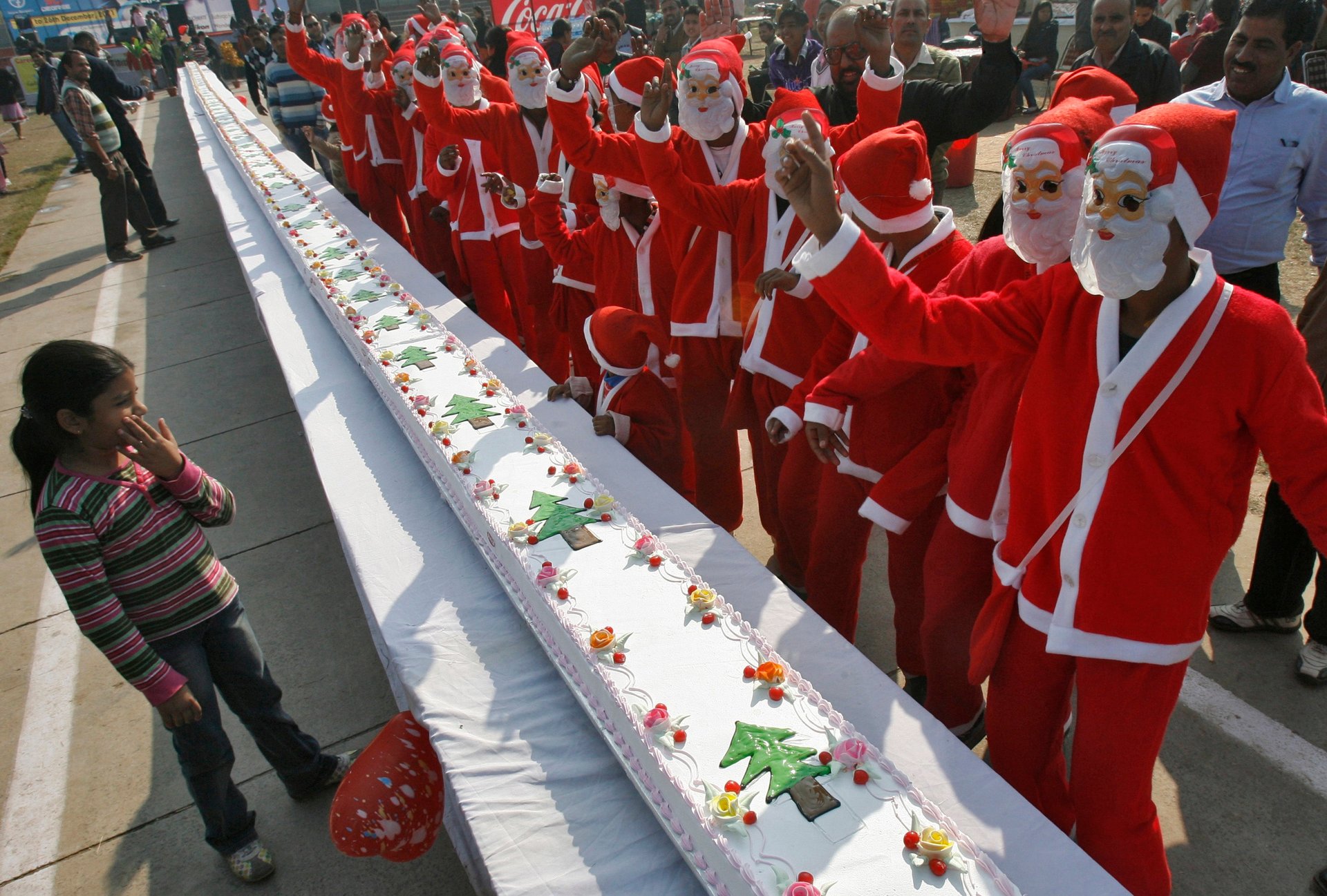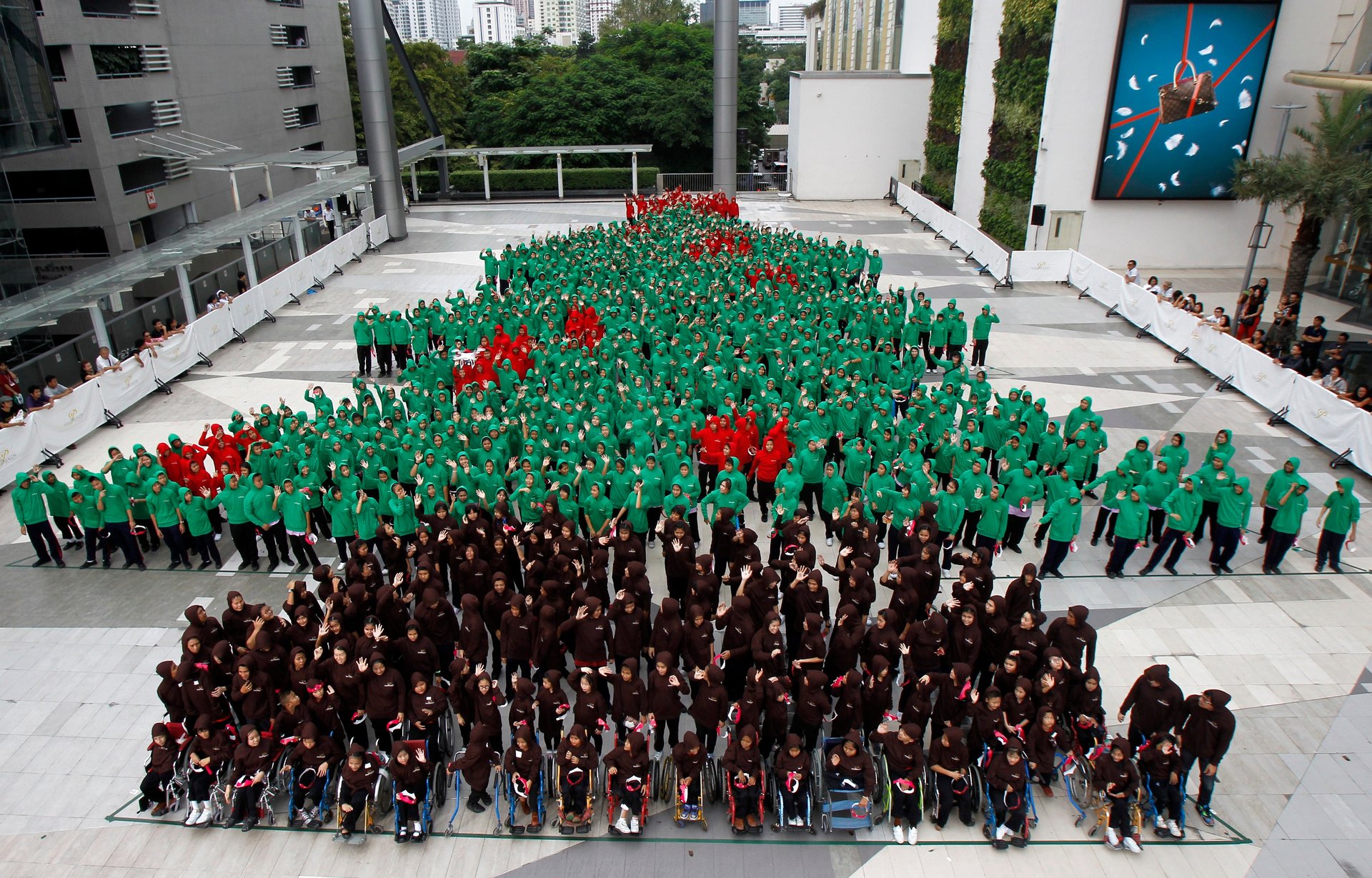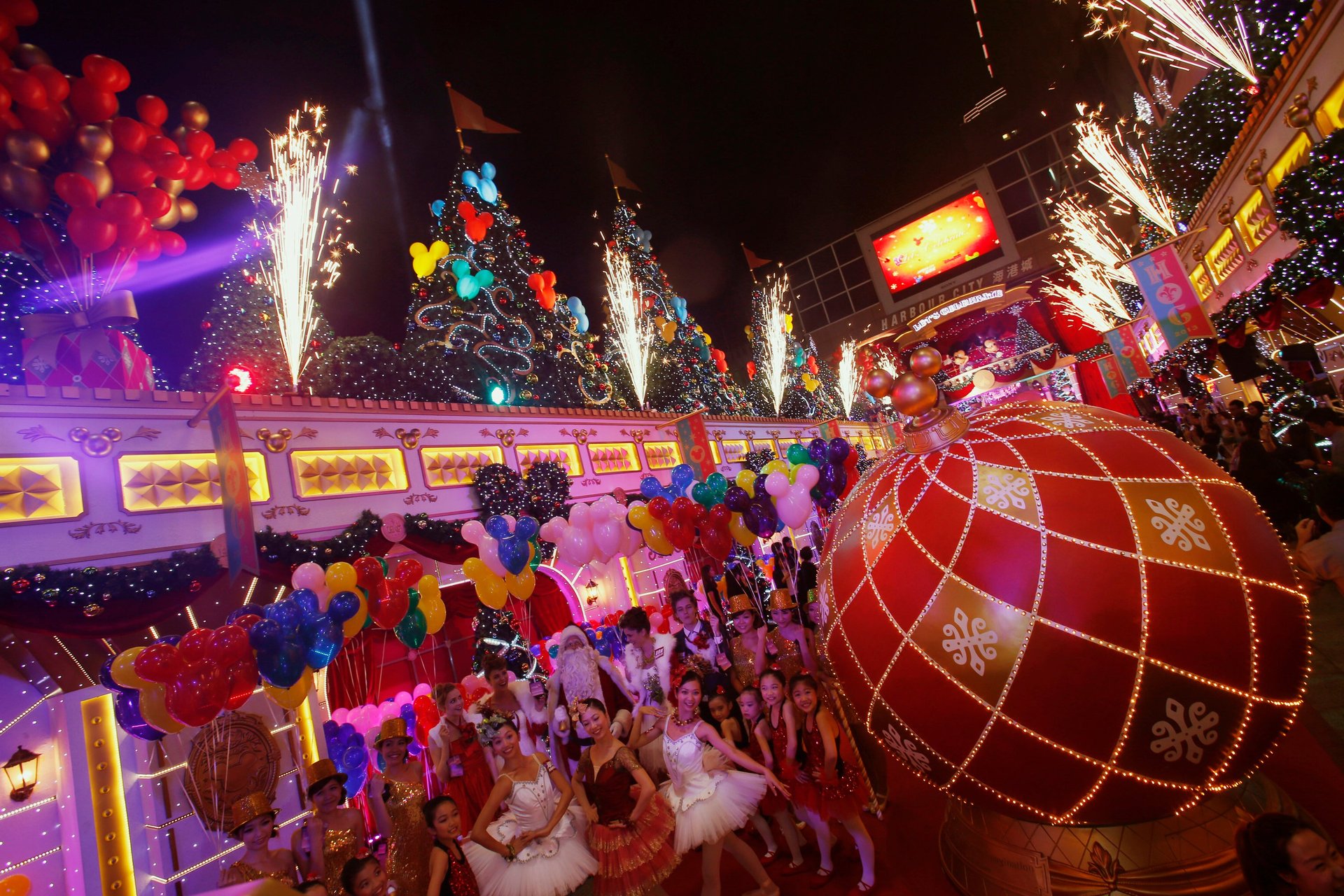Christmas has become huge in Asia—never mind the whole birth of Christ thing
In his 1886 poem “Christmas in India,” a bitter Rudyard Kipling lamented the fate of the Christian exile stuck in India on the holiday:


In his 1886 poem “Christmas in India,” a bitter Rudyard Kipling lamented the fate of the Christian exile stuck in India on the holiday:
As at Home the Christmas Day is breaking wan.
Kipling might not recognize Christmas in India today. While Christians make up just 2.3% of the population, markets and stores in major cities are decorated for the holidays, hotels and restaurants run special meals, there are carolers in shopping malls, and scores of sometimes puzzling celebrations, like this 101-foot-long cake and multi-Santa event in Chandigarh, northern India:

The Christmasification of India has its roots in Kipling and his ilk, British colonialists who left behind their educational influence, not to mention bakeries that make mince pies. But Christmas in India, and Asia in general, has undergone something of a transformation in recent decades, with countries around the region embracing the gift-buying, food, decorations, and singing—pretty much everything but the religious commemoration of the birth of Christ.
Thailand, for example, is 94% Buddhist and 5% Muslim. But many Thais have enthusiastically embraced the Christmas spirit—particularly the more materialistic elements. Despite the fact that it isn’t an official holiday, shopping malls and department stores erect towering, twinkling Christmas trees, and snowmen and candy canes are on display in many shops come late November. Many malls run special Christmas promotions, and one of the city’s major shopping centers is even open until midnight during the holiday period.
In fact, last month some 852 schoolchildren decked out in green and red assembled in Bangkok to shatter the Guinness World Record for the biggest human Christmas tree.

Thais’ fondness for the holiday seems to involve an enduring passion for shopping, a historical openness to foreign traditions, and the Thai concept of sanook, the love of fun and festivities. Why let religious implications stand in the way of a good time? One child told Global Post a few years ago that he thought Santa Claus is Jesus Christ’s father. “You know, the Thai Christmas doesn’t have anything to do with religion,” his mother said. “It’s just something that’s fun for us.”
In Hong Kong, a city that sometimes seems to be made up of mostly shopping malls, stores and office buildings seem to be competing for the most over-the-top, outlandish, eye-catching Christmas decor.

Spending hundreds of thousands of dollars on Christmas decorations isn’t uncommon, mall managers told AFP, in order to attract all-important customer footfalls. “The budget for Christmas decorations has to go up because it is really serious competition in Hong Kong and China,” Karen Tam, the manager of Harbour City, told the news wire.